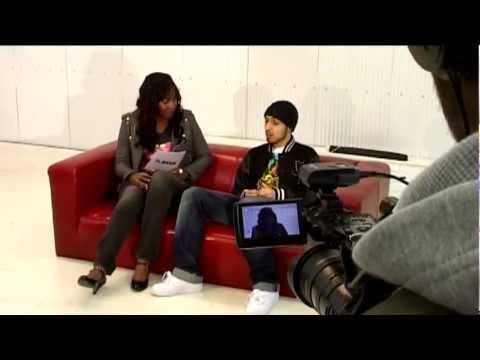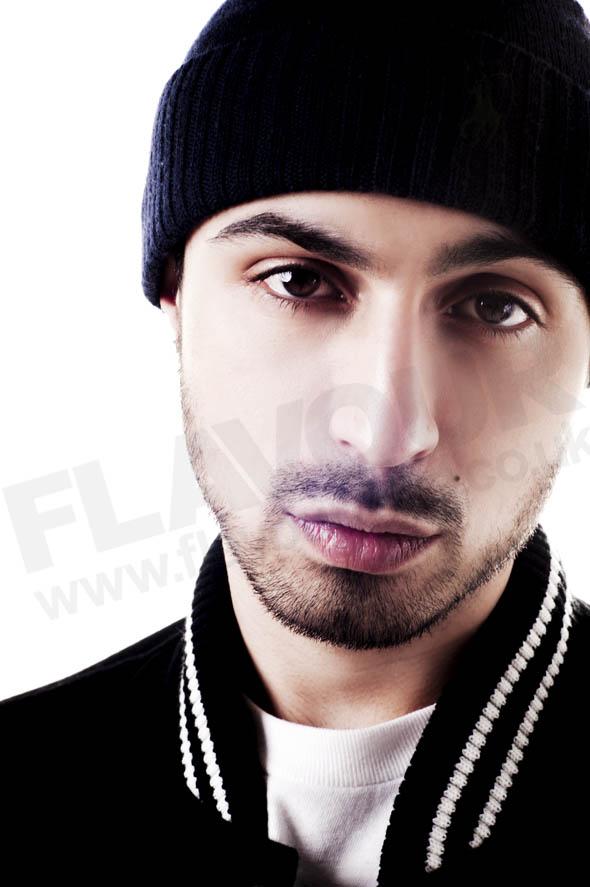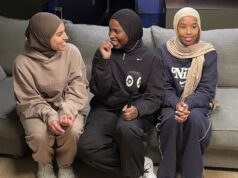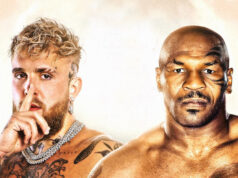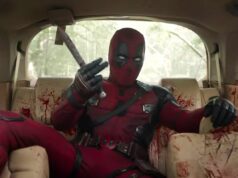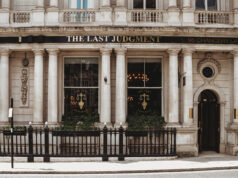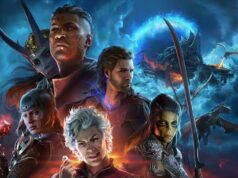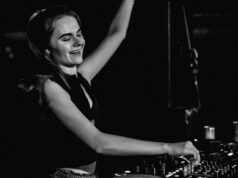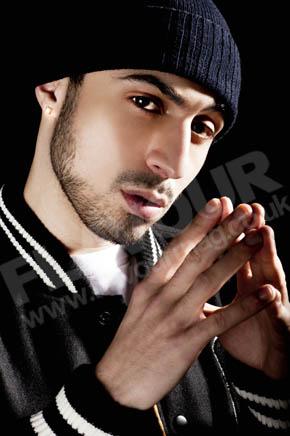 With an acting career already spanning several years, Adam Deacon takes the next step and proves himself as a director, with the UK’s first urban comedy, Anuvahood.
With an acting career already spanning several years, Adam Deacon takes the next step and proves himself as a director, with the UK’s first urban comedy, Anuvahood.
We’ve seen him as Kickz in Shank, we’ve seen him as Dillon in 4,3,2,1, he played Jay in Kidulthood and Adulthood and now Adam Deacon takes the lead role in Aunvahood, as local area ‘wasteman’ Kay.
On paper, it looks like a pretty big step to go from actor, to director of a feature film, but to Adam Deacon, it was a natural progression.
‘It wasn’t really a big step for me’ he explains modestly. ‘Directing is something that I’ve always wanted to do, so I had always been aiming for that. I have always been working towards directing and even on other film sets, I have always paid attention to the directing side and I was always trying to get involved. I’m very outspoken on film sets, about what we should do and what we shouldn’t do and always putting ideas forward, then I realised my ideas were very good and that they always worked really well, so it only made sense to me to move on the next level and start directing. I eventually decided to do my own film and show people that I can come up with ideas as well as read a script.’
Written by Adam Deacon and co-star Michael Vu, Anuvahood is certainly a credit to British, urban, film. Shot in just 4 weeks, with a basic budget, doesn’t take away from the quality of the film or the performances given by the cast. Watching Adam on set, you quickly realise just how meticulous and intensive he is as a director, insisting on watching every scene being played back and refusing to allow any oversights at all, no matter how slight they may be.
‘You have to be that way as a director. If you write the film, then no body else knows your vision or exactly what you are trying to achieve except you.’
‘It’s hard work and it’s a really big battle, because as the director, only you know exactly how you want things to look and how you want them to come across on film, so you have to be adamant about what you want. It’s difficult when you have so many other people trying to tell you how they think you should do things, when I feel as the director, I already know what I want. It’s a struggle, but you just have to be adamant.’
Making sure that your vision is realised on the big screen is just one of the many hurdles a director has to face. As the writer and director of the film all comment, criticism and critique lies with you. Anuvahood is not due for release until March, however the title of the film is rumoured to already have already have caused contention with fellow film director, Noel Clarke. The title ‘Anuvahood’ gives the impression that the film is a parody of its predecessors, Kidulthood and Adulthood, which has allegedly left actor and director, Noel Clarke, slightly displeased.
‘I heard he (Noel) was a bit upset, but you would have to ask Noel about that to be honest. Obviously, I wrote the film, Noel knew we were doing it and from what I’ve heard he is cool with it. I haven’t spoken to him, so the truth is I really don’t know about that.’
Film title aside, another negative criticism about British, urban, film is the portrayal of white girls, who are sometimes depicted as ‘easy’ or cast in roles pertaining to sex.
With Aisleyne Horgan-Wallace cast as a loveable, but at the same time, quite sexualised character called Maria, you can begin to wonder if this kind of ‘type-casting’ is in any way subconscious or intentional.
‘There was no thought behind any aspect of this movie in terms of race. We just kind of wrote from the heart as in whatever we thought was authentic for that character. I more thought about what characters or personality I wanted to play that part.’
Anuvahood is packed full of stereotypes, some racial and some not, but that is certainly part of its charm. Nothing in the film is in any way offensive, so if it isn’t offensive and it makes you laugh who cares?
‘Some people have also said that there is a lot of racial content in the film. We try to go out of our way to make sure every race kind of has a little giggle at themselves. We tried not to leave any race out of that, everyone has some sort of laughable trait and this film does play on those stereotypes, because it is a comedy. That is what comedy is all about. I watch comedy now and I think that is where it has all gone wrong. We have gone so PC that we can’t make comedy anymore and it shouldn’t be like that. In real life, people make fun of things, it doesn’t mean you are racist or harbour deep feelings of hate towards someone if you mimic their accent or play on racial stereotypes. I think when you don’t put that on TV or film that is where the problems start, because you are not allowed to even have a laugh about things anymore.’
What really warmed me to this film was the fact that it was the first comedy film I could really identify with. Films like Friday, House Party etc are classic films, but there is something about a film like this, set in inner city London, which makes it all the more endearing. If you grew up in London, you will know a Kay, or you will know a Tyrone and you will be able to identify with Kay’s exploits. It’s these elements that make Anuvahood that little bit more special.
‘We just haven’t had anything like this yet. I think the whole sort of ‘hoodie’ thing is getting played out. There are only so many films about gangs you can make. There is another side to that type of culture, not everyone from a council estate is a gang member or up to no good. I think that’s what I wanted to portray. It doesn’t have to be doom and gloom all the time.’
Words by Trina John-Charles


